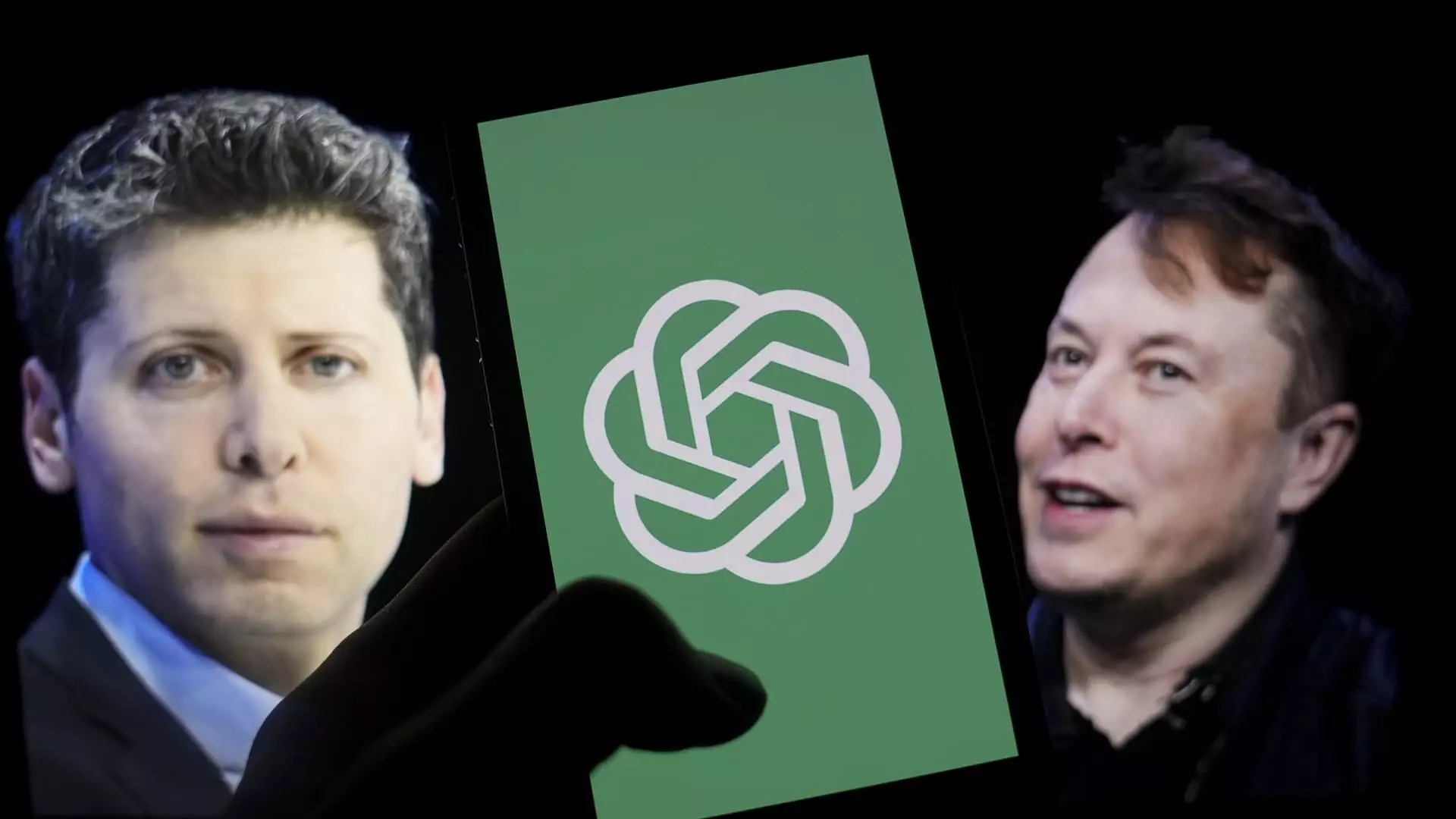Elon Musk, the enigmatic entrepreneur behind companies like Tesla and SpaceX, has recently waded into the murky waters of a legal skirmish with OpenAI, the artificial intelligence enterprise he co-founded in 2015. This unfolding drama raises critical questions about competition, corporate ethics, and the landscape of AI technology. Musk, along with his AI venture xAI and former OpenAI board member Shivon Zilis, has sought a federal court injunction to halt OpenAI’s transition to a fully for-profit model. This article analyzes the motivations, implications, and broader context of this escalating conflict.
At the heart of this legal confrontation lies the fundamental disagreement over corporate governance and competition in the AI sector. Musk’s legal team argues that OpenAI is engaging in anti-competitive practices by allegedly pressuring investors to abstain from supporting rival organizations, including xAI. This move is seen not just as a tactic to maintain dominance but as a broader attempt to stifle innovation within the industry. The significance of these allegations cannot be overstated, as they strike at the core of how tech startups interact with one another and manage investments.
The complaint invoked the Racketeer Influenced and Corrupt Organizations (RICO) statute, which is generally associated with organized crime. Musk’s attorneys expanded their case to include antitrust concerns tied to Microsoft, another core player in this drama and a key investor in OpenAI. The implications of such allegations highlight an urgent need for regulatory scrutiny over financial alliances and strategies that could inhibit equitable competition in an already hostile market landscape.
Musk’s establishment of xAI in July 2023 signaled his commitment to not merely coexist within the AI space but to stake his claim aggressively. The launch of the Grok chatbot, coupled with an ambitious funding strategy aiming for a valuation of $50 billion, indicates Musk’s determination to challenge the supremacy of established players like OpenAI. Reports indicate that he aims to procure 100,000 Nvidia chips, emphasizing the importance of cutting-edge technology in this relentless race.
However, Musk’s ventures aren’t without challenges. His strategy includes fighting against a seemingly monolithic OpenAI, which has secured substantial investments, including nearly $14 billion from Microsoft. This raises the question of whether Musk’s approach will yield the innovative breakthroughs he envisions or prove to be overshadowed by entrenched competitors with significant resources.
The Federal Trade Commission (FTC) has recognized the urgency of examining the partnerships and investment strategies shaping the AI landscape. FTC Chair Linda Khan announced the initiation of a market inquiry concerning the influence of major cloud service providers on AI developers. This investigation highlights a critical turning point in how lawmakers and regulators perceive the intertwining of technology and finance, particularly within sectors characterized by rapid growth and intense competition. The FTC’s engagement underscores how intertwined corporate actions can invite broader scrutiny that might alter the competitive dynamics within the sector.
The implications of Musk’s case extend beyond the immediate conflict between him and OpenAI. Should the court rule in favor of Musk, it could pave the way for more rigorous constraints on how tech ventures can coalesce without infringing upon the rights of competitors. Such a ruling could redefine the competitive landscape, potentially encouraging a flurry of innovation as companies seek to carve out their niches, free from the looming shadows of corporate monopolization.
The generative AI market is poised for explosive growth, with projections estimating revenues could exceed $1 trillion within the next decade. This rapid progression makes the current disputes all the more noteworthy. Companies are racing to secure investment and talent, fighting to define a new era in technology that promises to revolutionize entire industries. However, as seen in this case, the quest for dominance can lead to lesser-known yet impactful ethical dilemmas.
As OpenAI continues its transition toward a fully profit-driven model, the conversations surrounding its responsibilities toward innovation become ever more pressing. The notion of a company evolving from a non-profit entity to a model defined by profit maximization raises conceptual questions about ethical commitments made to shareholders versus customers and society at large.
The legal battle between Elon Musk, OpenAI, and Microsoft is emblematic of a broader struggle within the tech industry. As these companies push to shape the future of AI technology, their practices, and strategies warrant examination not just from a business perspective but also from an ethical and regulatory standpoint. The outcome of Musk’s lawsuit could set critical precedents for how companies operate in a competitive landscape fraught with challenges. Ultimately, the trajectory of AI innovation lies in the balance between fostering competition and ensuring fair play in an increasingly complex digital ecosystem.

